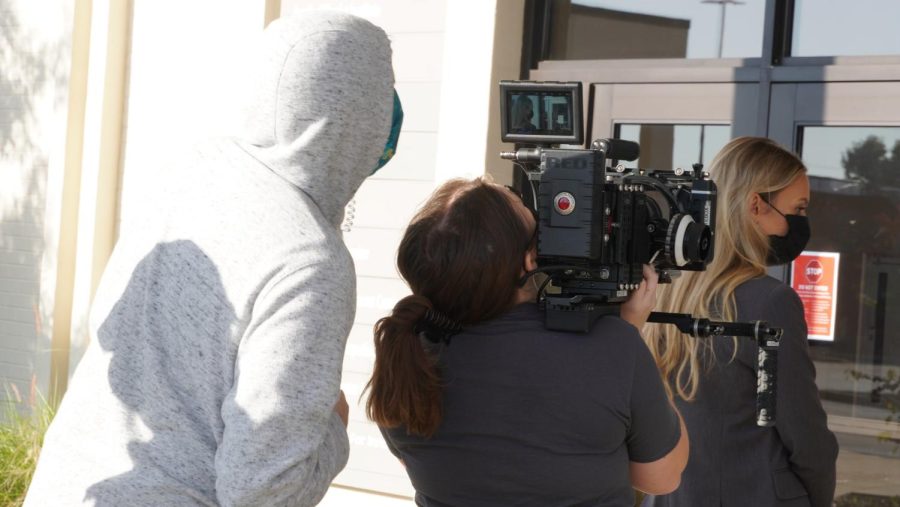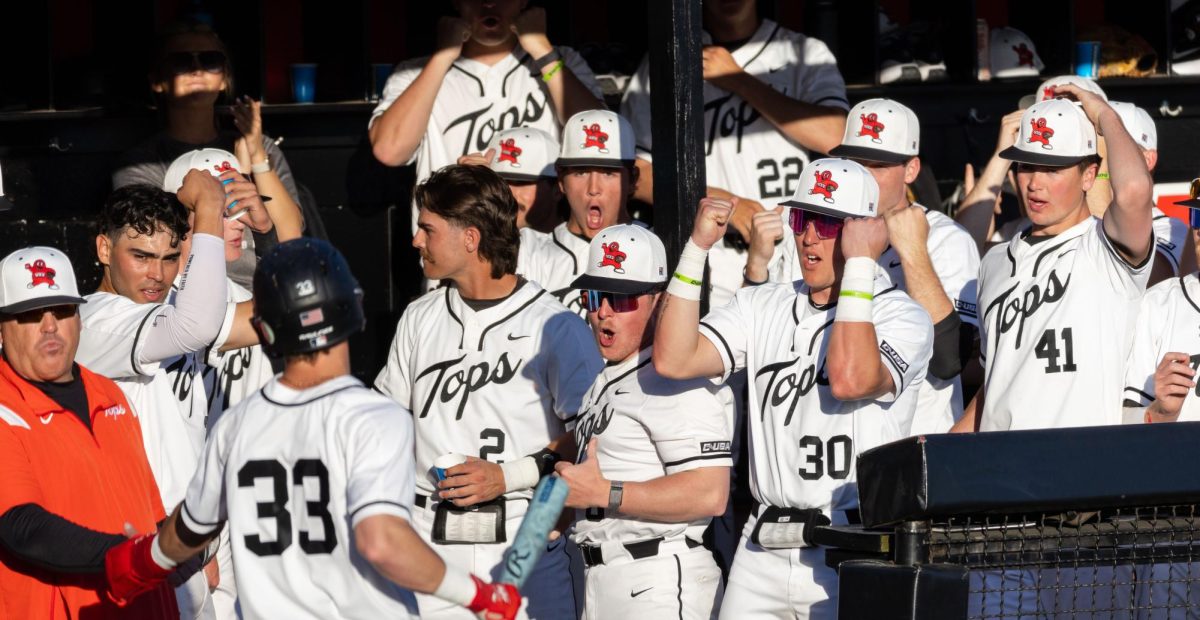WKU students share experience in film production program
January 10, 2022
WKU introduced the Bachelor of Fine Arts in Film Production in the fall of 2020. Originally, the university only offered a Bachelor of Arts in Film, a more flexible program that allowed students to double major.
The BA program that was in place at WKU prior to 2020 struggled to serve the different types of students in the program. Sara Thomason, film coordinator and assistant professor, said the program was not rigorous enough for students who wanted to work in the film industry, yet it was too much for students who were taking film as a double major and didn’t plan to work in the industry.
As a way to remedy this difference, WKU introduced the BFA in Film Production and updated the BA program to better fit the needs of students, Thomason said.
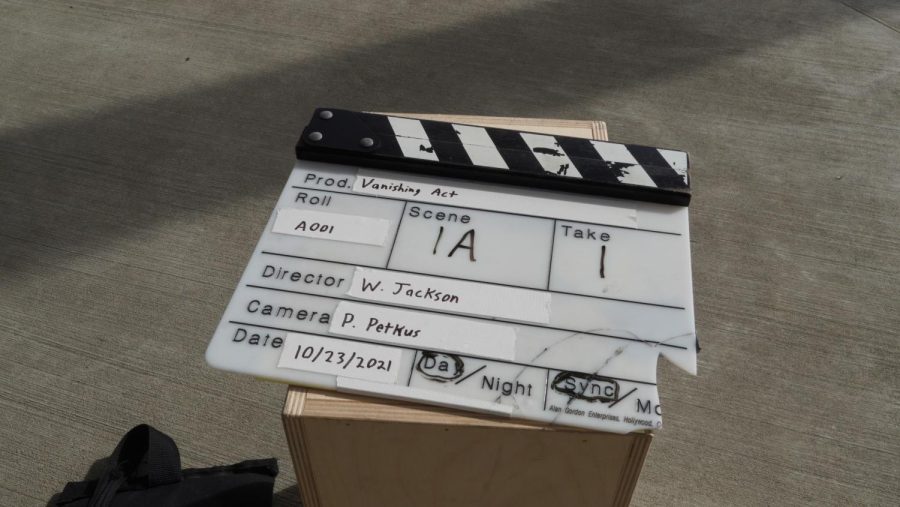
The BFA in Film Production is an 81-hour pre-professional program that provides students with hands-on instruction in pre-production, production and post-production, according to the WKU Website.
“The requirements for the BFA and BA are the same the first year,” Thomason said.
First year students in the film programs take introductory classes such as introduction to cinema and basic film production as a way to discover if their affection for film lies in watching and talking about film or actually creating them.
After the first year, students make the decision to apply for the BFA, which accepts 24 students every year, or stay in the BA.
Students that are accepted into the BFA receive a “filmmaking bootcamp” in the fall semester that teaches directing, cinematography, producing and production design, according to Thomason. Students will produce 24 films in the fall semester, and in the spring they focus on post production such as sound and picture editing.
Thomason said work days on set are typically 13 hour days with a one-hour break. These long work days are important for students to experience since this is what they will encounter in the film industry.
Our program is hard and our students are tough, because the film industry is hard and you have to be tough to work in film,” Thomason said.
Thomason said third-year students will work on sets for senior student’s thesis films and will create their second level of films in the spring semester.
In the fourth year of the program, students make their thesis films in between capstone classes. In the spring, students do post production on thesis films and then screen.
According to Thomason, recent policy clarification has been made by the university regarding the ownership of the student films.
As a way to prevent issues that might arise from having the student director own the film, the university now owns the films.
“When our students asked us for clarification, we asked the university for clarification,” Thomason said.
Since WKU provides the most money, resources, and guidance for the films, it was decided that the university would own them, Thomason said.
“Nothing changes for the students,” Thomason said. “They can submit that film to any festival they want and they can show it to anyone they want to show it to. The only thing that we ask is that they make it password protected, so that it is not publicly available.”
The policy opens up opportunities for students to use the films and footage they create since they can get permission from the university rather than the director.
Thomason said films created by students are reviewed by the Advisory Committee and faculty who give students feedback on the films. Students can fill out festival strategy forms if they want to submit their films to festivals.
Student films can be submitted to bigger festivals such as the Student Emmy’s and Student Oscars as well as regional festivals, Thomason said.
Jacob Staley, a senior in the BFA in Film Production program, was the 2021 recipient of the David J. Clarke Memorial Scholarship from the Ohio Valley Chapter of the National Academy of Television Arts & Sciences, according to the WKU website.
Staley said the film program allowed him to get into the Student Oscars, Student Emmys, and allowed him to receive the $5000 David J. Clarke Memorial Scholarship.
Staley is now working on his own senior thesis as a post-specialist working on sound design and editing.
“In order to get pre-production credit, I was a producer,” Staley said. “The film is currently called ‘Whitney’. My job was to find locations, actors, and try to get funding.”
Staley said he is now editing the film and he is looking forward to assembling the product they made during the spring semester.
“Everyone was fantastic on our set,” Staley said. “We had such a great time. We ran into almost no problems, which is really surprising.”
Julie Bowles, a senior in the BFA Film Production program, worked alongside Staley on the same senior thesis film as a cinematographer.
“I do most of the visual design and planning out how lightning is going to work, basically helping to make the visual language of the film,” Bowles said. “I was super involved with the director and the production designer.”
Bowles said the director gave her the vision for how the film was to look, and she performed her job as cinematographer to bring it to life.
Bowles said she was always drawn toward the more technical side of things and that is where she sees herself working in the future.
“I didn’t necessarily think about becoming a cinematographer, but now after going through school I am way more interested in having that creative role,” Bowles said.
After graduation, Bowles plans to work with smaller production companies that work on commercials or reality TV rather than full feature films as a way to slowly prepare herself for a career in the film industry.
Since there isn’t a major film industry in Kentucky, students have to consider moving out of Kentucky once they graduate.
“If you want to work on the movies that you’re seeing in theaters, you have to move to where those are being made,” Thomason said. “Right now, those are not being made in Kentucky.”
Thomason said the major areas for film are Los Angeles, Atlanta, New York, and Canada.
“We have a program with WKU Global where we do a study away program,” Thomason said. “We take our seniors to Los Angeles and we have them talk to the directors guild and writers guild. We try to make it less intimidating for students who have never left the state.”
Thomason said that while she wishes there were more opportunities in Kentucky for her students, right now she encourages students to look outside of the state for bigger opportunities.
Staley and Bowles recently attended the WKU Global trip to California to get a feel for what the industry there is like and to make connections.
Since the BFA in Film Production program began in 2020, the current group of seniors will be the first to make it through the program. Although the BFA program is a four-year program, a hybrid form was created so that upperclassmen students in the older BA program still had the opportunity to participate in the BFA. Current sophomores will be the first group to experience the program as it is designed to be.
Ella David, a sophomore in the BFA program, said she had been considering going to WKU for film since high school. David said when she toured WKU she learned that WKU would be adding a BFA program.
“When I came and toured here, Sara had told me they were adding a BFA program, and I was interested because I really wanted to do film production,” David said.
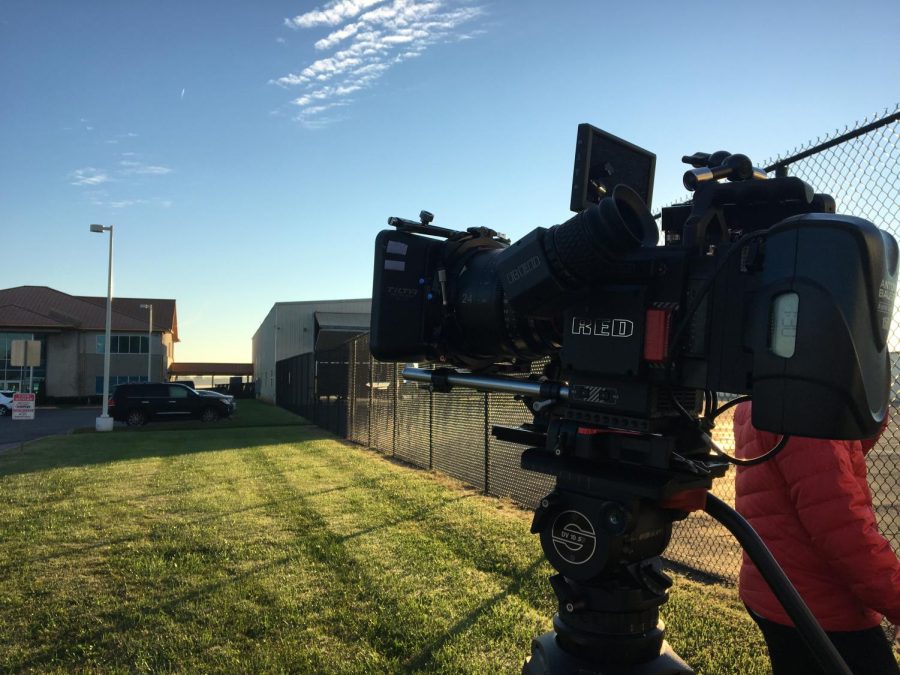
David said her freshman year experience confirmed that she wanted to go into film production, and she decided to apply for the BFA.
David said the amount of time spent on set is the main difference between the BA and the BFA.
“I so vividly remember the first time I went on set because I was so nervous,” David said. “I just remember showing up and watching the upperclassmen doing what they were doing. At the end of the day, we went for 13 hours total. I was exhausted, but I just couldn’t stop smiling. It was amazing.”
David said set days consist of waking up around 5 a.m., gathering equipment from the film lab in Jody Richards Hall and then setting up at a location anywhere in a 30-minute radius.
David said students are responsible for securing locations for their films as well coming up with the money used for production design.
“I spent a lot of money out of pocket getting lunch for people, getting costumes for actors, and getting locations figured out,” David said. “The reason why we don’t get a budget is so the upperclassmen can. In two years, when I am making a thesis film, I will be able to use money that is not my own.”
According to Thomason, since the program offers students the access to professional-grade equipment and a full crew, the only expenses students have to pay for are production design and the cost to feed cast and crew.
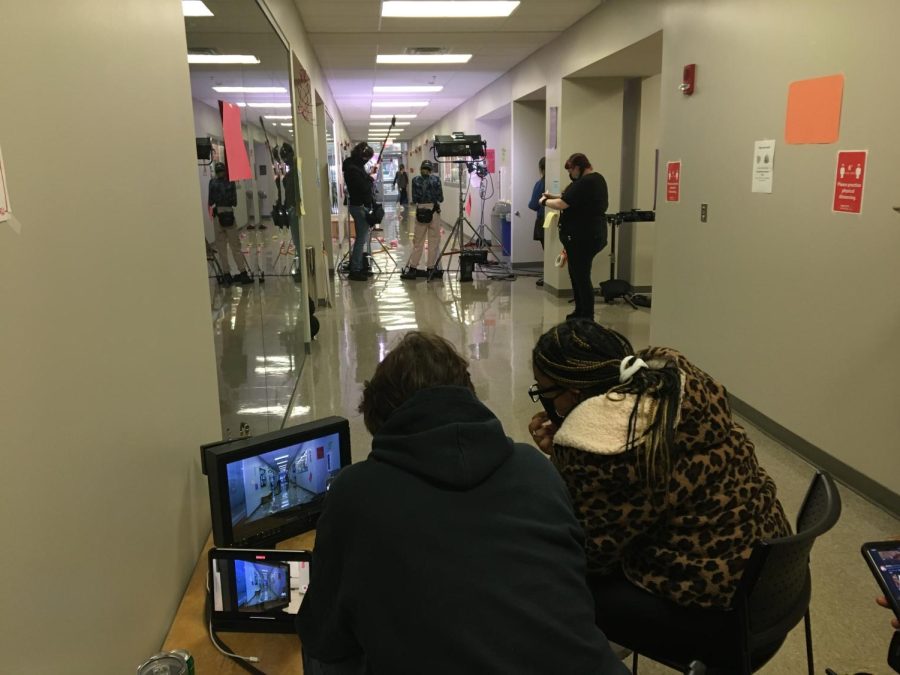
According to the WKU Film website, the film program provides students with professional equipment such as RED Cinema cameras, Sound Devices recorders, and LED lighting packages.
“All of the equipment we provide our students for a one-day shoot could easily be up to $15,000,” Thomason said. “Some of our students decide to write really crazy films that require a lot of production design or require them to fly actors in, however those are not things we require.”
According to Thomason, students have the opportunity to apply for Faculty-Undergraduate Student Engagement grants, four of which she has supervised. The program also provides $500 for thesis films.
“What we’re trying to do here is build something that doesn’t exist,” Thomason said. “We’re looking at a program where you are getting a high level, expensive education for a regional university tuition rate.”
Thomason said her favorite part of the program is getting to see students that have no filmmaking knowledge become incredible storytellers and enduring the vulnerability it takes to tell their stories.
“Ultimately we are creating a network and a series of connections,” Thomason said. “Our students care for each other so much, and I hope and believe they care for the program too. We are all just here for them.”
News reporter Madison Carter can be reached at madison.carter312@ topper.wku.edu.



